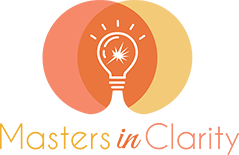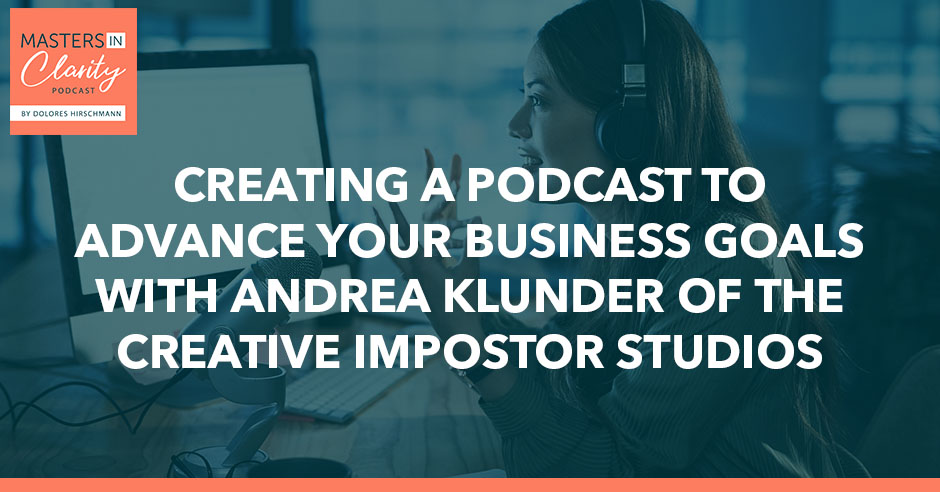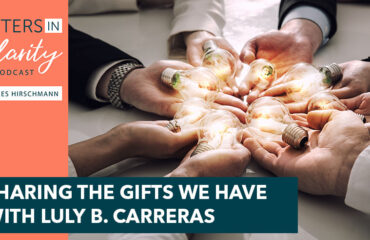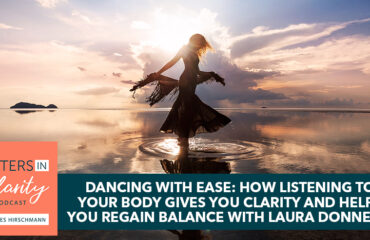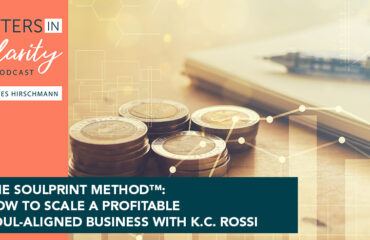It’s not easy to make money podcasting. If you’re creating a podcast just to make money, you’re missing the point. A podcast is supposed to help your brand reach a wider audience with full creativity. It is one of the most creative things you could do in terms of outreach and promotion. You’ll earn money along the way but you need to build that audience first. Join Dolores Hirschmann as she talks to the creative director behind The Creative Impostor Studios, Andrea Klunder. Andrea shares more about her journey into podcasting and how it grew into something bigger. Learn how she helps companies, nonprofits, and small businesses create their own podcast to advance their goals. And find out the answer to the million-dollar question in podcasting, how do you make money? Start podcasting the right way today!
—
Watch the episode here
Listen to the podcast here
Creating A Podcast To Advance Your Business Goals With Andrea Klunder Of The Creative Impostor Studios
I’m looking forward to my conversation with Andrea Klunder. She is a Creative Director behind The Creative Impostor Studios, a podcast production studio helping you craft a branded audio experience you and your audience will love. Here’s the thing with Andrea. I got curious about the name of a company, The Creative Impostor Studios, because, for me, there was a connection between creativity and Imposter syndrome. If that is happening to you, there’s a curiosity of how creativity and Imposter syndrome can be put in one name of a company and what is the relationship between those two, I want you to check out this episode with Andrea Klunder. You don’t want to miss it.
—
I had a great conversation with Andrea Klunder from The Creative Impostor Studios. Here’s one thing that she shared with us. She shared the million-dollar question that everybody who is doing a podcast or thinking about starting a podcast would ask themselves. The question is, how do I make money with my podcasts? If you want the answer to that question, read the episode with Andrea.
—
Andrea, it is exciting to sit down for this conversation. There are many questions I want to ask you, but first things first, I always ask the same question. What was your clarity journey? “Clarity journey” as we know that whatever we have arrived at, it was neither linear nor clear. Sometimes, there were ups and downs. I know you had a lot of them and the podcast had something to do with your ups and downs and where you are now. Why don’t you walk us through the journey?
The shorter version is that I have had many stages in my entrepreneurial journey. Originally, I went to college, majoring in Music and Vocal Performance, and I was going to be a singer. That was the only thing I wanted to do in my entire life. It was to become a professional singer and go to music school. I was studying opera and classical voice. In my freshman year, I hated it. It was doing exactly what I wanted to do and I was miserable. My first life crisis at the young age of eighteen years old was like, “What do I do with my life? This isn’t it. This is the only thing I’ve ever wanted to do.”
Eventually, I ended up studying Broadcast Media and Production. I graduated and moved to Chicago. I ended up working in nonprofit arts management at an opera company. I was suddenly working behind the scenes at the place where I thought that I would be performing on stage one day. I suddenly realized that there was only so far that I could go in nonprofit arts administration. There’s a ceiling and I had already hit it after eight years. I was wondering, “What happens next?” I never wanted to be an administrator that was never my goal. What am I doing?
A friend suggested that I attend these women in business cheeses and wine exception thing. I was like, “I don’t want to go. I’m not a woman in business. I don’t know what this is.” She’s like, “Just come.” I took a little quiz and the quiz told me that I should be an entrepreneur and start my own business. I was like, “That never occurred to me.”
At that time, I was teaching yoga on the side. It’s a fun thing that I had started doing a few classes here and there. I had the brilliant idea to quit my day job and start a yoga studio, which is what I did for five years. I ran out of money, energy, desire to run that business, and social life. I hit the bottom. When I say the bottom, that was in my early 30s and that was the first time that I had ever experienced what I would call depression.
It was the first time that I had experienced bankruptcy, hopefully, last. I started to have this feeling that I used to call Imposter syndrome. I’ve revised the way I think about it since then. It is that feeling of being a fraud or self-doubt because when I ended up closing the yoga studio, people would say, “What do you do?” I’d meet somebody somewhere, “What do you do? What’s your name?” That’s always what people ask.
I didn’t have an answer because I didn’t do anything for a while. I couldn’t say that I was a business owner or a yoga studio owner. I could barely say I was teaching yoga because I had 1 or 2 clients left-ish and I didn’t know what to do. I spent a good bit of time in that not knowing what to do place and the thing that pinged my interest was podcasting. It was something that someone had suggested to me.
The act of creating a podcast for your company is one of the most creative things you could do in terms of promotion.
A client had asked me when I had the yoga studio, “Would you ever start a podcast for yoga?” I didn’t know what a podcast was. She turned me on to a few different podcasters that she liked. I was like, “This is cool.” At that time when I had the studio, I could not even begin to fathom how I would start another project. I’m like, “Where does this fit in? I don’t understand how you make money from podcasting. This sounds awesome, but I don’t have the time to focus on it.”
All along since that moment, I was listening to all these amazing shows about entrepreneurship, lifestyle, business, yoga, and meditation. It kept this thing going in my mind, like, “Here are all these people building these amazing communities, building businesses, and having interesting conversations. I have a degree in Media Production. Even if I don’t know how that turns into a business and what is going to happen from there, how do I make money from this? Maybe I can start the podcast and go from there.” That’s how I created The Creative Impostor.
From there, it turned into consulting with other people who wanted to start a podcast. It turned into editing other people’s shows once they started them because a lot of people realized they didn’t want to learn how to edit their own shows. They thought, “Can I hire you to do that?” It has grown into The Creative Impostor Studios, which is a full-service media production company for nonprofit organizations, brands, and business leaders who want to shift the status quo in their niche through audio media. It escalated to where we are now.
There are so many nuggets of wisdom that you shared. I’m looking at this from the perspective of our readers where is the one a-ha moment or learning element that you shared. I believe that when we share our stories with authenticity, like not living any detail behind. People share their highs and lows. I always have this question, “How did you jump from this one to this one?” There’s always a gap there and I know there are no bridges. You have to go down to come up. I love that you shared, and you didn’t say it in these words, but the courage to sit with no identity. I also felt the courage to be in the limbo face and sit with it.
That is what most of us don’t do. You don’t get to the nuggets of learning, clarity that you need, and the courage to take action without clarity. We talk about mastering your clarity. In mastering your clarity, you got to be ready to take action with a little tiny clarity, not the whole picture because we never have it.
One day, you got hooked into podcasts, no plan around what podcasts will do for me, but it was enough for you to get into the podcast action, whatever that looks like, and here you are. What does that here you are mean? What does your business look like now? The readers are at the edge of their seats. Here you are. You start a podcast and now, what happened?
I have a small team of contractors who are all specialists in whatever they do. I have a couple of associate editors. I have a production assistant who helps with some of the social media and the scheduling. I have a technical director who helps with audio engineering, tech, and whatnot. I have a writer who writes show notes.
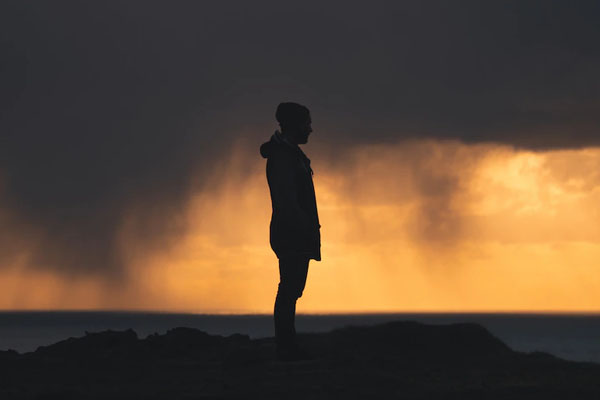
The Creative Impostor Studios: When you are at your bottom, you start to have this feeling of imposter syndrome. It is that feeling of being a fraud. You’re just constantly doubting yourself.
What are we creating? We are helping organizations, companies, and small businesses create audio-first podcasts that they can use to advance whatever the purpose is of their business. We’re helping by creating strategies with them and by helping them figure out the logistics of what are they going to record? How are they going to record? When are they going to record? How often? Who is the host of their show? A lot of times, when we’re working with a non-profit organization, they may have someone who wants to create the podcast that could be in their community outreach department. It could be in their PR department, but maybe it’s not the PR director who wants to be the host of the show.
How do we figure out who is the voice of your organization? How are we going to create this show? What is going to be useful and interesting to your listeners? How are we going to connect with them? From there, we will go ahead and edit the content. In some cases, add music scoring to it, and help publish and promote those shows. It grew from, “Let me create one show,” to now, depending on the month and who’s on contract at any given time. We have about 10 to 12 organizations of different sizes that we work with in some capacity to help them create their shows.
I have my idea of the meaning behind it, or I make my own meaning, but the Creative Impostor. Tell me more.
That was the name of my first podcast when I did not have a business plan and I don’t remember who came up with that name first. My partner was helping me brainstorm ideas around the podcast. It was because I knew I wanted to start a podcast, but I didn’t know what it would be about. I made a list of twenty ideas of topics. I was teaching yoga and meditation. It could be a yoga meditation podcast or a holistic lifestyle podcast. I have a background in music, theater, and performance. I’m going to create a podcast about creativity or maybe it’s about entrepreneurship.
I’ve been feeling like a fraud. I keep hearing about this thing in business called Imposter syndrome. Maybe it’s about that. I had all these ideas and I did informal market research. When I would meet someone, I would say, “I’m launching a podcast.” They’d say, “What’s it about?” I’d say, “It’s about yoga and meditation.” If their eyes glazed over or they were like, “Cool,” they move on to the next topic, or they’re looking around to see who else they can talk to. I thought to myself, “That’s not the topic because nobody is interested.” I was fishing informally for what is a topic that was going to catch somebody’s attention.
I came up with this idea. I was like, “It’s around creativity and Imposter syndrome.” People would say, “I don’t know what that is, but I think I have that.” They’d say, “Tell me more.” I was like, “This is the intersection.” I know many creative people who do all kinds of different things from some of the different experiences and backgrounds that I’ve had. I already had a list of people that I could talk to about this in my mind.
We were batting this idea around my partner and me. One of us said, “The creative impostor.” We were like, “Yes, that is it.” How does that translate from that show into the business? It’s something that resonates deeply with a lot of my clients, no matter what field they’re in. I work with organizations in arts and culture, an opera company, sales trainers, and people in wholesale distribution. No matter what industry we’re in, the act of creating a podcast or a show for your company and brand is one of the most creative things you could possibly do in terms of outreach and promotion.
When working with different companies and brands, you have to know what you don’t know. Be curious and ask the right questions.
There are a fair amount of artistic choices that you put into how you craft your show. The creativity part flows naturally, and it’s something new that you’re trying and implementing. Anytime we implement something new, there’s always that level of like, “Am I a podcaster? Is this who I am? Is this part of our identity? How do we communicate this?” It’s taking on a new role.
I don’t know that I’ve ever talked about this with anybody, but this is a great conversation that maybe we don’t have to go deep into here, but something that you’ve already had in your podcast. As you’re bringing it up, creativity and Imposter syndrome go hand-in-hand because creativity is about creating what doesn’t exist.
Have you ever led a group of people to a destination you’ve never been to and you think you know where you were going? You have your GPS and they’re following you. You look back and you say, “I hope I’m going in the right direction.” Creativity is about creating something. In your case, a podcast that didn’t exist before.
In that, if we don’t have self-doubt, we won’t have the quality, the capacity, or the curiosity to reach out to someone that can guide us. We can ask ourselves, “Is this working?” I love that you combined the one thing that can severely trump creativity, if you allow it, but can, at the same time, be the one thing that can make your creation much better if it empowers you.
You have the ability to know what you don’t know, ask questions, and be curious. When I’m working with my clients, that is a huge part of our process. They come to me and they say, “You’re the podcasting expert or genius.” Those are my client’s words. It’s not my words. They’ll say that and they think that I have all the answers. I don’t because I’m not an expert in their business or organization. What we’re doing is we’re coming together and I’m curious about what they’re creating, what is their mission, what are they trying to do, and who is their audience. They’re curious about podcasting, how do I communicate this? How do I do this? We’re discovering it and figuring it out together.
I’m going to ask the question that I wasn’t planning on asking. For anybody reading who is thinking about starting a podcast or that has a podcast is probably asking, “Dolores, ask the question.” The question they want me to ask you is how do you make money with a podcast?
This is a tricky question because a lot of times you don’t, and that is not the answer that most people want to hear. Part of what we’re working with our clients is what do you want the podcast to do? If you are strictly creating a podcast to make money, you have an uphill battle. It’s challenging. Those who are able to directly profit from their show are those who already have a huge following, a huge audience, and an audience that will translate to podcast listeners.
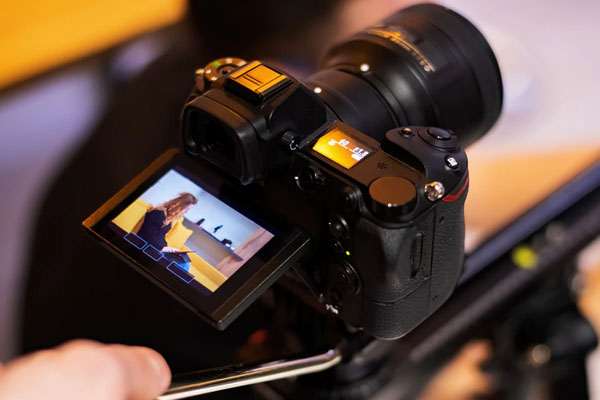
The Creative Impostor Studios: Creative Imposter Studios is a full-service media production company for nonprofit organizations and brands. This is for leaders who want to shift the status quo in their niche through audio media.
You might have a huge blog or YouTube channel and those audience members may or may not ever listen to a podcast. People tend to consume media in the way that they like to consume media. Few people will move around to various platforms. You can go the route where you are looking for sponsorships, affiliate deals, and things like that to profit directly from your content. More often, the clients that I work with, what I see work for them is that their show is a branch of some outreach-based mission that is part of the overall brand affinity that they are growing for their company.
For instance, I have a wholesale distribution flooring company in Western Canada. Their primary audience is small, flooring retailers based in Western Canada who carry the products they distribute. That’s not a lot of people. It’s a couple of hundred people. Those people that are listening to their show are already their retailers. They already work with them. They don’t need to get that person to be their customer, but when they create that show for them, they’re giving them sales advice. They’re given them, “These are the new products that are coming out. When your customer comes in and says X, what they mean is Y, and this is how you can better service them.”
It’s a client engagement podcast.
There are many different ways. That is one example of how you can cleverly use this medium in a way that’s not linear, and make podcasts get customers and increase revenue.
What are you working on? What are you excited about in the future? Is it anything that you’re about to reveal?
This is the first place that I am publicly talking about this. I’ve dropped hints to my existing clients, but I don’t think that I have publicly announced this yet because it’s not quite ready. It will be this summer of 2022. What I’m working on creating now is the Creative Imposter Studio Membership. This is going to be an annual membership for podcasters who are podcasting on behalf of a brand, a small business, a company, or a nonprofit organization who wants support with the strategy of the craft and the culture of their show. This is something that I’m already doing with my existing production clients. The clients that I’ve already helped actively create their show. I’ve capped out on how many clients I can have without adding more production team members.
I have people who are like, “I already have my show and editor I love, but I love what you’re talking about. No one has talked to me about podcasting like this. I’m creating this podcast for my company. I love making the podcast. It’s so much fun. I have a great audience, but I don’t know if it’s working. I don’t know if I should keep doing it. It was expensive. I don’t know what the return on investment is and I feel like I’m doing it in a vacuum. The only place I can go for advice is in Facebook groups where I get wacky advice whenever I post a question. I don’t what direction to go next.” The membership will be for those creators who want to come in and have a seminar every couple of months on a special topic.
Before you do a podcast, take a children’s book and read it out loud as you would to a child. You’ll become more expressive.
What are those topics about? We’ve already done one for my clients about how to interpret your download numbers and stats. What do those mean? Are they important? Are they accurate? What do they not mean? We’re doing one this June 2022, which will be the first one that will be open for public registration, which is about sponsorships and affiliate programs.
When does it make sense? When does it not make sense? What are the common mistakes that we see people make? We’re using case studies from within my clientele. That membership is going to be so much fun because I get to talk about everybody’s shows with them. I get to dive deep into their shows, listen to their show, see what’s working, see what could be better, help them to thrive, and help their voice to shine through.
I could keep on going for an hour, but I want to make sure that our readers get the succinct and clear value that we promised at this show. What book, podcast, or series, Netflix or something, must our readers check out.
I’m going to have an answer that I think no one has ever had on your show. I want everyone to pick up a children’s book. It doesn’t matter which one. I could recommend a couple from my childhood. I like A Light in the Attic by Shel Silverstein. You could pick up any of Dr. Seuss‘s books. The reason why I want you to do this is because if you are creating content where you use your voice, whether that’s a podcast, YouTube video, you’re doing Instagram Lives, or whatever it is, I want you to take this children’s book. I want you to read it out loud as you would to a child.
In your podcast?
No, before you create your next piece of content. Before you make your next video, live, and record your next podcast, take A Light in the Attic or take your favorite Dr. Seuss book. Read it out loud as you would to a child. The reason why I’m saying this is because what it does when you read a book like that has very specific language and it uses language in an arrhythmical way, and you imagine communicating to a child, you naturally become so much more expressive.
When you’re more expressive, that is what pulls your listeners and your audience into what you’re saying. That’s what leads them. That’s what creates the connection. If you could imagine reading a story to a bunch of small children. They have their eyes fixated on you and they’re waiting to find out what happens next. That’s how we want to engage our audience when we create media.
I’m going to practice that myself, but my kids are all grown up, so I don’t read children’s books anymore. Where can people find you?
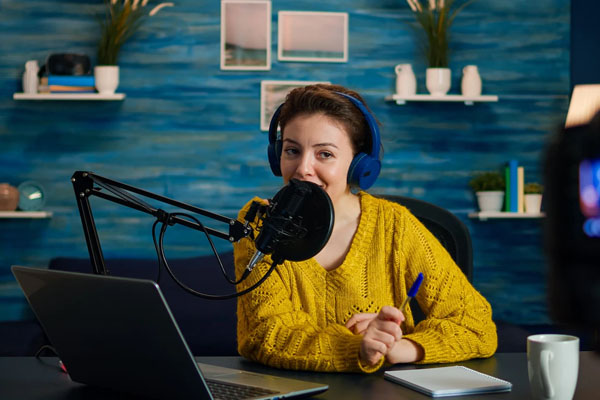
The Creative Impostor Studios: If you are strictly creating a podcast to make money, you have an uphill battle. People who are able to directly profit from their show are those who already have a huge following.
The CreativeImposter.com and I do have a special something for your readers, which is a secret podcast. It’s five episodes. It’s called Five Questions You Haven’t Asked About Your Podcast. This is for someone who is thinking about creating a show but hasn’t yet or someone who already has one. These five questions are going to help you tie into some of those questions that help you dig a little deeper into the value that you are creating for your audience and what it is that you want to get in return. That is at TheCreativeImposter.com/Clarity.
Any parting thoughts?
My parting thought is when you were thinking about a new endeavor for your business or creating something new, like a podcast, think about what it is that you want to share. What is the impact that you want to make? What is the thing that you want to shift in your niche? I’m all about working with people who want to shift the status quo, not maintain it, but bring about a change. When you know what that impact and shift are that you want to make, that’s what is going to propel you forward, past any limiting, self-doubt, imposter-y feelings, and I don’t know how to. That impact and desire to make that change is what’s going to push you forward.
Go in there, impact and make your fear smaller than your dream. Thank you so much for your time and I’m excited to download my secret episode.
Absolutely.
Thank you, Andrea.
You’re welcome.
Important Links
- The Creative Impostor Studios
- The Creative Impostor Podcast
- A Light in the Attic
- Dr. Seuss
- TheCreativeImposter.com/Clarity
- https://www.Instagram.com/TheCreativeImpostor/
- https://www.LinkedIn.com/in/AndreaKlunder/
About Andrea Klunder
 Andrea Klunder is the creative director behind The Creative Impostor Studios, helping you craft a branded podcast experience you and your audience will love.
Andrea Klunder is the creative director behind The Creative Impostor Studios, helping you craft a branded podcast experience you and your audience will love.
With a multi-faceted background in theatre, music, film, yoga, meditation, and small business management, Andrea wraps it all up in an approach to podcasting that helps your brand use audio content to break the status quo and influence a positive net impact in their niche. The Creative Impostor Studios has developed shows for clients like the New Mexico Department of Cultural Affairs, Del Norte Credit Union, the Santa Fe Opera, NARM Training Institute and more.
In 2017, Andrea launched Power Your Story, a high school mentoring program and podcast produced by students with neurodiverse learning styles in Chicago. She has been a featured speaker and trainer for many conferences and organizations. Her mission is to help your voice to shine!

